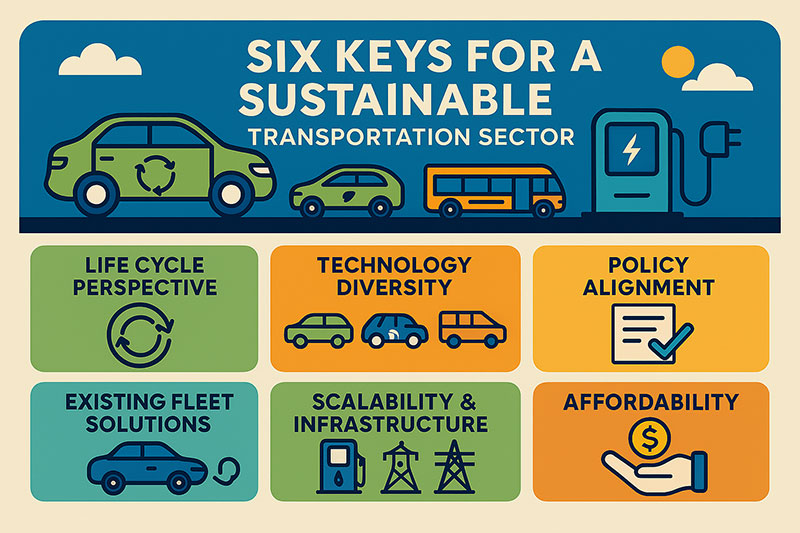Date: July 25, 2024 PDF: 10.0 MB
 This study provides a fact-based assessment of the impact of crop-based biofuels on food supplies and prices.
This study provides a fact-based assessment of the impact of crop-based biofuels on food supplies and prices.
Biofuels will be critical to reducing the carbon intensity of liquid fuels, which is necessary to achieve emissions reduction goals from legacy and new vehicles equipped with internal combustion engines.
Some wonder if we should divert crops to fuel production at the expense of food production. The expansion of biofuels in the past has not resulted in an expansion of cultivated acres and has generated significant livestock feed. The RFS itself has reduced carbon emissions by more than 1.2 billion metric tons and the impact on consumer expenditures has been about 1%.
Several broad findings and conclusions which can be drawn from this review:
- Agriculture Land for Biofuels – While demand for biofuels has increased significantly, the land required to produce the necessary agriculture feedstocks has not similarly increased.
- Biofuels By-products and Food Production – The primary co-products from ethanol production include distillers grains, corn oil, and carbon dioxide (CO2). Replacing the protein contributed by the 35.1 million metric tons of dried distillers grains with solubles (DDGS) demand in the U.S. would require growing 15 million additional acres of soybeans and 5 million additional acres of corn.
- Cost of Biofuels – The cost of producing the feedstocks is not directly a cost of biofuels production, as the commodity price sets the cost of feedstock to the biofuels industry. Biofuels increased corn prices by an average of 14%, while the impact on final consumer prices in the United States was estimated to be around 1%.
- Carbon Impact of Biofuels – The CI of corn ethanol related to direct and indirect land use change has been declining over time, as corn yields have increased without corresponding increases in fertilizer use and as the ethanol conversion process has become more efficient. There is significant potential to lower the biofuels emissions by adopting climate-smart practices for crop production that increase the efficiency of N fertilizer use, reduce use of fossil energy, and increase soil carbon sequestration. Studies of the RFS have found that it has delivered a net social benefit to the U.S. of $110 billion for an estimated carbon reduction of more than 1.2 billion metric tons.
- Biofuels and Food Production – The impact of the production of corn ethanol on food prices and indirect land use change was more significant in the early years of the RFS than in the long run. Data shows that 37.6% of the corn produced in the U.S. was used to produce ethanol, and ethanol made up 10.2% of all fuel used in gasoline vehicles in 2022.
Historical evidence suggests that technological advances in agriculture have enabled it to continue to improve productivity at a rate that has outpaced the increase in demand, and as a result, land in agricultural use has been declining.
Please fill out the form below to download the full report.
Podcast
 The Impact of Biofuels
The Impact of Biofuels
July 29, 2024
Ethanol and other biofuels are already used in more than 10% of all gasoline purchased in the United States. How much more can be used and what would the impact be on food supply and other considerations?





